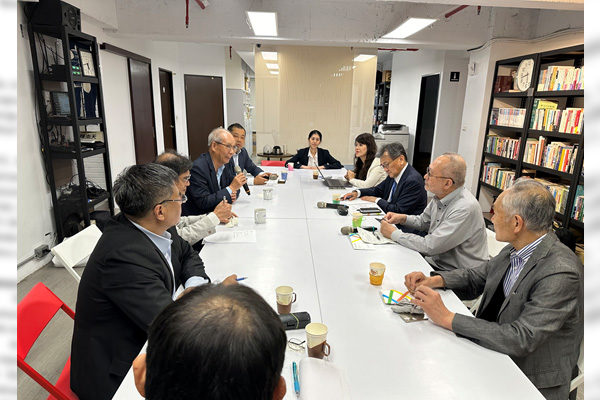Taiwan’s new President Lai Chingte is called the “most pro-Japanese politician” in Taiwan. In July 2022 when he was vice president, he visited Japan to pay his respects to former Prime Minister Shinzo Abe who was assassinated earlier in the month. Since Japan and the Republic of China severed diplomatic relations in 1972, Lai was the most high-ranking Taiwanese official to visit Japan, except for then Vice President Lee Tenghui’s transit stopover in Tokyo.
Prior to his inauguration as president, Lai sent a video message to a general meeting of the Japan-Taiwan Parliamentary Roundtable, a multipartisan parliamentary group in Japan, on May 9. “Taiwan and Japan are firmly connected by one invisible thread and in the community of common destiny,” said Lai. “A Taiwan contingency is a Japan contingency and a Japan contingency is a Taiwan contingency.”
What will Japan do for Taiwan in a contingency?
The Japan-Taiwan Parliamentary Roundtable sent 31 lawmakers to Lai’s inauguration ceremony, representing its largest ever delegation to Taiwan. Lai and Vice President Hsiao Bikhim had lunch with the Japanese parliamentary delegation immediately after the ceremony. “A relationship in which we can help each other in times of trouble is a true friendship,” said Lai.
Japan must not depend on Lai’s pro-Japanese attitude forever. What is being questioned is Japan’s action toward a Taiwan contingency.
On the occasion of the presidential inauguration ceremony, I visited Taiwan as a member of the Japan Institute for National Fundamentals delegation. At our talks with Taiwanese experts including those of JINF’s interlocutor, the Taiwan Security Association, they showed an interest in what Japan would do for Taiwan in the event of a Taiwan contingency.
It was Abe who first said, “A Taiwan contingency is a Japan contingency.” When Japan’s ruling Liberal Democratic Party Vice President Taro Aso visited Taiwan in August last year to take over the wishes of Abe, he in a speech questioned whether Japan was “prepared to fight.”
While Abe’s statement has sparked much more vigorous debate than before, Japan and Taiwan should promptly specify how to cooperate including the sharing of information.
Ensign Sugiura is still respected in Taiwan
At a press conference at the Japan National Press Club during his visit to Japan in 2017, Lai mentioned Ensign Shigemine Sugiura of the Imperial Japanese Navy as a person who influenced Taiwan. In October 1944 during World War II, Sugiura flew his plane to intercept U.S. military plane over a southern Taiwanese city of Tainan. He lost his life because he did not eject immediately after his plane was shot to avoid its crash to a local village. Tainan, where Lai served as mayor, built the Flying Tiger General Mausoleum to enshrine Sugiura.
What Lai cited as the community of common destiny in which members stand or fall together may refer to cases such as Sugiura’s. We need to accept the depth of meaning of Lai’s statement.
Takashi Arimoto is a Planning Committee member at the Japan Institute for National Fundamentals and publisher of Monthly Magazine SEIRON at the Sankei Shimbun newspaper.


